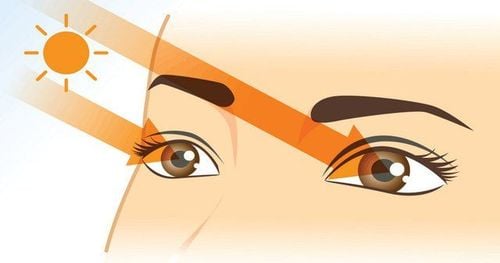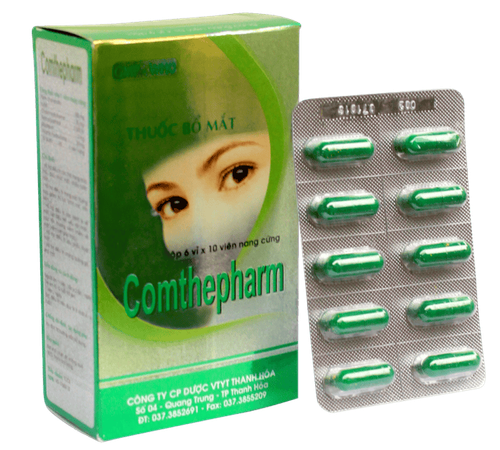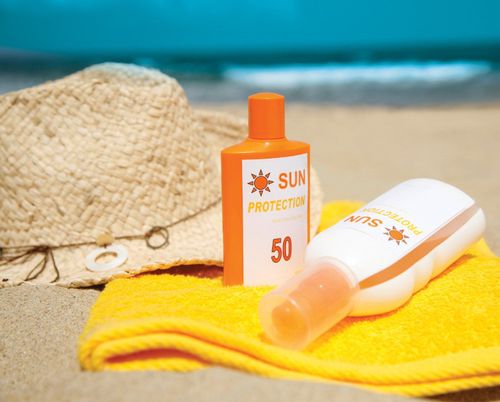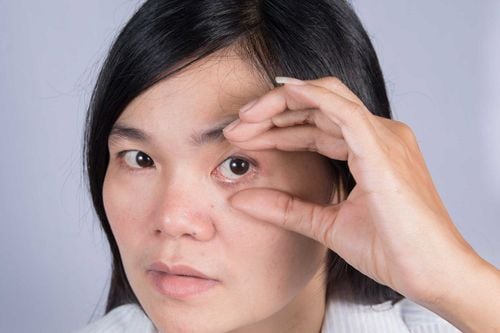This is an automatically translated article.
The article was professionally consulted by Specialist Doctor II Nguyen Thai Hung - Department of Medical Examination & Internal Medicine - Vinmec Danang International Hospital.UV rays, also known as ultraviolet/ultraviolet rays, are a type of light emitted by the sun. Rays affect human health, rays have the effect of synthesizing vitamin D, but when exposed directly for a long time, rays will adversely affect the body, especially the eyes.
1. What is ultraviolet light?
Ultraviolet rays, also known as ultraviolet rays, are rays emitted by the sun with a wavelength shorter than visible light and longer than X-rays, the wavelength of UV rays from 10nm to 380nm. Regarding human health and based on wavelength, UV rays are divided into 3 types:UVA: Wavelength from 380 to 315 nm UVB: Wavelength from 315 to 280 nm: UVB rays stimulate the metabolism of Melanin. (pigmentation) darkens and darkens the skin. UVC : wavelength < 280 nm: short wave sterilizing. In addition to ultraviolet rays emitted by the sun, there are artificial ultraviolet rays such as ultraviolet rays emitted by welding machines, from devices such as computers, phones, and televisions.
2. Harm of UV rays to the eyes
UVC: the ability to damage the eyes, but thanks to the ozone layer, the rays are retained. But today due to many impacts, the ozone layer is thinning, there are places where UVC rays can penetrate and affect human health. UVB: UVB rays are absorbed by the cornea most of the time. However, UVB still causes corneal diseases such as keratitis, conjunctival granulomatous, pterygium. UVA: Because it can penetrate the ozone layer, the amount of ultraviolet radiation is the most, accounting for 97%. UVA penetrates the cornea, enters the lens, retina, if exposed for too long will lead to macular degeneration or cataracts. Artificial ultraviolet rays due to the short amount of time in the eyes and the short distance from electronic devices, affect the eyes many times more than the sun's ultraviolet rays. The blue light from electronic devices will cause symptoms of eye pain, dry eyes, eye defects or macular degeneration (a condition with a high risk of blindness).
Tia UV gây hỏng mắt
3. Measures to protect eyes from ultraviolet rays
Use accessories that prevent ultraviolet rays such as wide-brimmed hats and sunglasses. Note that it should be used all year round because UV rays are visible throughout the year, not only in summer and sunny days. Should choose good sunglasses, have the effect of avoiding UV rays, otherwise eye diseases will be worse. Choose glasses close to the sides of the eyes to prevent ultraviolet rays from entering through the side of the eye. Limit going out in the hours with high UV radiation, only going out when absolutely necessary. Limit exposure to electronic devices that emit blue light such as televisions, phones, computers, etc. Eat a lot of foods containing nutrients that are good for the eyes. Using eye drops to prevent eye diseases Today, when technology is more and more modern, environmental pollution is increasing, making the ozone layer protecting the earth thinner and thinner. Since then, the amount of UV emitted from the sun is increasing and has more negative effects on human health.Besides, electronic devices such as televisions, phones are also sources of blue light that adversely affect your eyes. When you see abnormalities in your eyes, you need to go to an eye specialist for early examination and treatment.
Specialist II Nguyen Thai Hung has 13 years of experience as an eye doctor at C Hospital Da Nang and Ngu Hanh Son General Hospital - Da Nang. Currently working as an Ophthalmologist at the Inter-specialty Clinic of Medical Examination - Internal Medicine, Vinmec International General Hospital Da Nang.
Customers can directly go to Vinmec Health system nationwide to visit or contact the hotline here for support.














